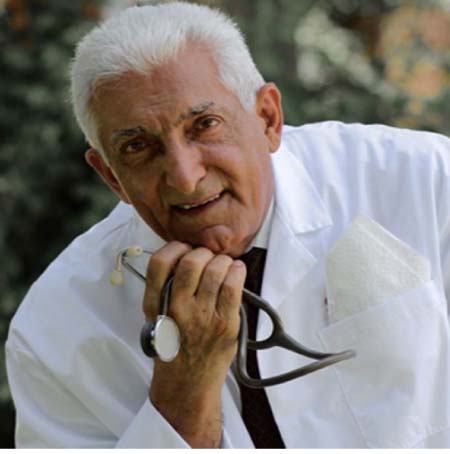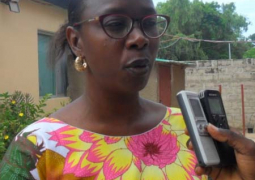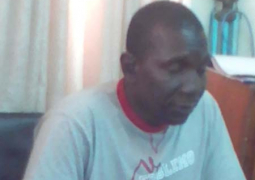
WHAT IS DEPRESSION
We all have a general idea about, ‘what is depression?’ If a person is sad, gloomy or feeling low, he/she is depressed. But when we talk about the disorder of depression, there is a difference.
Feeling sad, despaired, broken, alone or ‘depressed’ are common things in life. You cannot tag a person with a depression disorder because of feeling sad. Every person feels these emotions in his life, when some unhappy, dreary, gloomy, miserable or mournful event happens. This is just depression, the state of being depressed or sad, but if the person is not able to move on after a reasonable time period, that is ‘depression disorder.
DEFINITION OF DEPRESSION
Above is the explanation of depression in laymen’s term. Now after your basic understanding, it is time to go through a proper medical definition of depression. According to MediLexicon’s Medical Dictionary, depression is:
“A mental state or chronic mental disorder characterized by feelings of sadness, loneliness, despair, low self-esteem, and self-reproach; accompanying signs include psychomotor retardation (or less frequently agitation), withdrawal from social contact, and vegetative states such as loss of appetite and insomnia.”
One important thing to be noted here is that a person with clinical depression is not a weak person. Often a depressed person is wrongly perceived as a weak person who cannot stand against the troubles of life and face them. This is a wrong concept and people should not think like this. Clinical depression is an illness – a disorder. Depression works the same way as any other disorder or illness, say, ulcer, cancer, tuberculosis. As a person cannot do much against those disorders and illnesses, a person cannot either stand against depression – clinical depression, without proper treatment.
SYMPTOMS AND SIGNS OF DEPRESSION:
1. Depression is a state of being sad and gloomy.
2. The depression disorder is termed as Clinical Depression.
3. Clinical Depression is not the same as our usual sadness’ feelings. It is a disorder which requires proper attention and treatment.
4. A person with depression disorder is not a weak person. He just suffers from a disorder/illness, upon which he has no command.
Why Do People Get Depressed
Most people have felt sad or depressed at times. Feeling depressed can be a normal reaction to loss, life’s struggles, or an injured self-esteem.
But when feelings of intense sadness - including feeling helpless, hopeless, and worthless - last for many days to weeks and keep you from functioning normally, your depression may be something more than sadness. It may very well be clinical depression - a treatable medical condition.
How Do you Know If you Have Depression?
According to the DSM-IV, a manual used to diagnose mental disorders, depression occurs when you have at least five of the following symptoms at the same time:
- A depressed mood during most of the day, particularly in the morning
- Fatigue or loss of energy almost every day
- Feelings of worthlessness or guilt almost every day
- Impaired concentration, indecisiveness
- Insomnia (an inability to sleep) or hypersonic (excessive sleeping) almost every day
- Markedly diminished interest or pleasure in almost all activities nearly every day
- Recurring thoughts of death or suicide (not just fearing death)
- A sense of restlessness or being slowed down
- Significant weight loss or weight gain
A key sign of depression is either depressed mood or loss of interest in activities you once enjoyed. For a diagnosis of depression, these signs should be present most of the day either daily or nearly daily for at least two weeks. In addition, the depressive symptoms need to cause clinically significant distress or impairment. They cannot be due to the direct effects of a substance, for example, a drug or medication. Nor can they be the result of a medical condition such as hypothyroidism. Finally, symptoms that occur within two months of the loss of a loved one are not considered to be clinical depression.
Other Symptoms of
Depression
According to the National Institute of Mental Health, people with depressive illnesses don’t experience the same symptoms. How severe they are, how frequent, and how long they last will vary depending on the individual and his or her particular illness. Here are common symptoms people with depression experience:
- Difficulty concentrating, remembering details, and making decisions
- Fatigue and decreased energy
- Feelings of guilt, worthlessness, and/or helplessness
- Feelings of hopelessness and/or pessimism
- Insomnia, early morning wakefulness, or excessive sleeping
- Irritability, restlessness
- Loss of interest in activities or hobbies once pleasurable, including sex
- Loss of pleasure in life
- Overeating or appetite loss
- Persistent aches or pains, headaches, cramps, or digestive problems that do not ease even with treatment
- Persistent sad, anxious, or “empty” feelings
- Thoughts of suicide or suicide attempts
While these are common symptoms of depression, they may also occur in patterns. For example, a person may experience depression with mania or hypomania - a condition sometimes called manic depression or bipolar disorder. Or the symptoms may be seasonal as in the case of seasonal affective disorder.
There are several types of manic depression. People with bipolar II disorder have at least one episode of major depression and at least one hypo manic - mild elation or high - episode. People with bipolar I disorder have a history of at least one manic - extreme elation or high - episode, with or without past major depressive episodes. A patient with unipolar depression has major depression only, and doesn’t have hypomania or mania.
Types of Depression
All depression types are not the same. Major depression also known as clinical depression and chronic depression, also known as dysthymia, are the most common types. But there are also other types of depression with unique signs, symptoms, and treatment.
A Visual Guide to Understanding Depression
What Is Major Depressive Disorder
According to the National Institute of Mental Health, major depressive disorder is characterized by a combination of symptoms that interfere with a person’s ability to work, sleep, study, eat, and enjoy once-pleasurable activities.
There are times you may feel sad, lonely, or hopeless for a few days. But major depression - clinical depression - lasts longer and is disabling. It can prevent you from functioning normally. An episode of clinical depression may occur only once in a person’s lifetime. More often, though, it recurs throughout a person’s life.
In addition, with major depression, one of the symptoms must be either depressed mood or loss of interest. The symptoms should be present daily or for most of the day or nearly daily for at least two weeks. Also, the depressive symptoms must cause clinically significant distress or impairment in functioning. The symptoms cannot be due to the direct effects of a substance - drug abuse, medications - or a medical condition, such as hypothyroidism, nor occur within two months of the loss of a loved one.
For in-depth information, see Web MD’s Major Depression.
What Is ChronicDepression
Chronic depression, or dysthymia, is characterized by a long-term (two years or more) depressed mood. There are also symptoms present that are associated with major depression but not enough for a diagnosis of major depression. Chronic depression is less severe than major depression and typically does not disable the person. If you have dysthymia or chronic depression, you may also experience one or more episodes of major depression during your lifetime
What Is Atypical Depression
The key symptoms of atypical depression include:
- Overeating
- Oversleeping
- Fatigue
- Extreme sensitivity to rejection
- Moods that worsen or improve in direct response to events
Regular - or “typical” - depression, on the other hand, tends to be marked by pervasive sadness and a pattern of loss of appetite and difficulty fall or staying asleep.
What Is Bipolar Depression or Manic Depression
Bipolar disorder - sometimes referred to as manic depression - is a complex mood disorder that alternates between periods of clinical depression and times of extreme elation or mania. There are two sub types of bipolar disorder: bipolar I and bipolar II.
With bipolar I disorder, patients have a history of at least one manic episode with or without major depressive episodes.
With bipolar II disorder, patients have a history of at least one episode of major depression and at least one hypo manic (mildly elated) episode.
How Can you tell If youNeed TreatmentFor Depression
We all feel blue sometimes, and it I s normal to be sad in reaction to an event that is unhappy, stressful, or traumatic. Grief will follow the illness or death of a loved one, the loss of a close relationship, or termination from a job. Financial or legal problems can cause anxiety and depressed mood.
These normal reactions to such situations are termed reactive mood disturbance or adjustment disorder. The difference between someone experiencing a reactive mood disturbance and someone who is clinically depressed is Someone with a reactive mood disturbance will soon be able to place things in perspective and move on with other areas of life. A person who is clinically depressed is unable to get past the grief or disappointment - and sometimes the grief is for non-specific or vaguely defined reasons. Clinical depression can be compared to a veil that clouds and dulls one’s entire view of the world.
A depressed person may not recognize when a clinical problem is present. It is easy to explain away the symptoms by blaming them on stress or adverse events and even when stress or events are the trigger, understanding the cause is not always enough to lift the depression. Simply taking a vacation will not “cure” clinical depression, because the root of the problem will still be present upon one’s return. It is sensible to ask a close friend or relative to give an honest opinion about how they think the individual is doing. Professional help may be needed if: There is agreement that the person is not functioning well Many of the symptoms of major depression have been present for at least two week
For further information Email to azadehhassan@yahoo.co.uk, or send text only to Dr Azadeh 002207774469/3774469 between 3-6 pm.
Author: DR AZADEH Senior Lecturer at the University of The Gambia, Senior Physician and Senior Consultant in Obstetrics & Gynaecology, Clinical Director at the Medicare Health Cervices
Read Other Articles In Article (Archive)

Child protection specialist calls for stiffer punishment for child abusers
Aug 23, 2017, 11:49 AM



